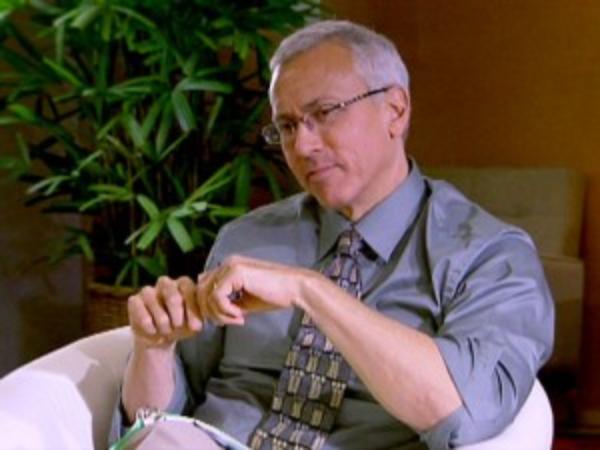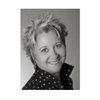Dr. Drew, Back for Celeb Rehab 2 and Talking Sex, Drugs and the New Media Meanness

If it didn’t mean a drastic cut in income, Dr. Drew Pinsky would make a terrific Surgeon General. He’s already the best-known and most trusted practicing physician for several generations of teens who’ve heard his late-night radio call-in show Loveline (still heard on 100 stations and the Internet five nights a week).
Now a year into a second daytime radio talker, Dr. Drew Live, on Westwood One, and with a new weeknight series, Sex…with Mom and Dad, running on MTV, he’s also promoting the return this Thursday (Oct. 23) of the reality hit Celebrity Rehab with Dr. Drew on VH1 (10 p.m. ET). The show nicknamed CR2documents the recovery process for a group of alcohol- and drug-addicted faded stars and starlets. There’s also Sober House, a still hush-hush 2009 VH1 project billed as a “sequel” to Celeb Rehab.
Pinsky also has a new book coming out early next year: The Mirror Effect: How Celebrity Narcissism Is Seducing America.
He is the media medical man who seems to have all the answers…and no time for a day off.
TV Maven caught “Dr. Drew” for a quick chat between planes recently. He’d just spoken to a college crowd on a Florida campus and was on his way to New York City for a round of talk show appearances for CR2. Checking in this season for in-patient rehabilitation were Gary Busey, Jeff Conaway (back for another try after dropping out of the program last year), Conaway’s girlfriend Vicki, American Idol finalist Nikki McKibbin, actress Tawny Kitaen, model Amber Smith, rock drummer Steven Adler, Sean Stewart (son of Rod) and L.A. riot beating victim Rodney King. Here’s a look at promo footage from the opening episode.
After Celeb Rehab premiered last year, you were very complimentary of Jeff Olde, Executive Vice President at VH1, for how he had left you and your production team alone during the shooting process. Was the network as hands-off as before or did they try push the second season in some new direction?
Dr. Drew:There was a certain amount of anxiety this time because it was such a different group of addicts. The anxiety was on the producers’ end. There’s a steep learning curve for TV people about what this thing is. Our show runners this time were all new people. As usual, you start out with them saying, “We’ll take them [the recovering addicts] into the woods and build a fire.” And we’re constantly having to tell people to forget everything they know about TV and reality shows. The greatest struggle was about…well, this was a very resistant group [of patients]. It meant extremely heavy lifting for me. It’s tough enough getting a motivated addict into the game. These weren’t always so motivated. They do come around. Gary Busey was one of the most resistant.
Not only did he have dependence on prescription meds, Busey also seems to have residual cognitive problems from the brain injuries he suffered in that 1988 motorcycle accident.
Dr. Drew:Yes, there was something going on. But he deserved a chance at treatment as much as anyone else. He’s got some significant issues. Every addict has them. We had to really address each of those problems. We really worked him up medically. He benefited. He’s much more on this planet now. He’s kind of a pleasure to talk to now. He was really in trouble when he came in. People recoiled from him. Now he’s engaging. I hope he continues. He’s a fantastic success. I talked to him yesterday. He’s doing well. But yes, he was difficult.
In the opening episode, Vicki, Jeff Conaway’s spooky girlfriend, shows up and announces she wants to check in for rehab, too. Was that pre-arranged or something spontaneous that was caught on camera?
Dr. Drew:We had no idea that was coming. What the hell? We had no idea what to do. My sense was she was angling to come on the TV show. My thing was, “No, I’d like to treat you, but this is not possible.” Then we came up with the idea of putting her in the other unit, the one Jessica Sierra [another participant in Celeb Rehab last year] is living in [by court order]. In fact, Jessica was her roommate. I’m not sure how much you’ll see of Vicki on camera.
What was the roughest moment of Celeb Rehab 2?
Dr. Drew:The night Jeff Conaway called the Pasadena police and said he was being held against his will, that he’d been kidnapped. The police came and I had to come down to the hospital and answer questions. That was rough. I thought I’d have a stroke.
We’ve heard only a few hints about Sober House, the “sequel” to Celeb Rehab 2. You have mentioned it on your radio shows a few times. What can you say about it?
Dr. Drew:It comes on VH1 in January but I can’t say too much about it yet. You get to see what happens next to a group of the Celeb Rehab people after their 21 days of rehab. People from this season and some from Season 1 share a sober living facility and continue their recovery.
That includes Andy Dick?
Dr. Drew:Andy’s there. That was another incredible experience. We haven’t even begun editing the footage yet.
On the MTV show running now, Sex…with Mom and Dad, we see you working with families from all over the country as they learn the truth about their sexually promiscuous kids. What were the logistics? Did you really go to St. Louis, Miami and Dallas to counsel these folks?
Dr. Drew:Originally the producers wanted me to go to five different cities, but unlike every other doctor on television, I actually have a license and I can’t practice outside California. So they brought everyone to L.A. and I met with each family. They did a great job casting the families. I had great affection for every one of them. It was a lovely experience. Lots of these kids were changed by the experience.
What did you learn from talking to parents who had no idea their kids had so many sex partners?
Dr. Drew:The single most common theme in this group was this very deep fear that if they brought up the topic with their kids, they felt deeply they’d be encouraging the behavior. What they learned is that when they begin discussing sex in a more dynamic way, suddenly the kids go from “my parents are lecturing me” to hearing for the first time that their parents have done things they can relate to and learn from. That’s quite a triumph. Once again, this was a show where producers came at me and I said if I’m going to do it, I have to do my way. And they let me. I spent at least five hours with each family. From my standpoint, that’s a luxury that you don’t have in clinical practice.
Three TV shows, two daily radio shows, writing books, an ongoing medical practice – what’s chasing you, Dr. Drew?
Dr. Drew:I was very much looking forward to distilling things down this year. But on TV there are so many different platforms, that it’s about throwing “S” at the wall and seeing what sticks. Then opportunities come and you try to explore them. In the next year, I’d like to cut back some. But recently my wife called me and said, “Say yes to everything.” We have triplets who’ll be 16 in November. They’re going to college soon. That’s a lot of tuition.
Do your kids watch your TV shows?
Dr. Drew:Sex…with Mom and Dadis sort of weird for them. But Celeb Rehab they really like. They liked meeting the people that were on it. They couldn’t wait to meet them.
With all your TV success now, will you stick with Loveline?
Dr. Drew:Contractually I’m withLoveline for another 3-1/2 years. It’s been such a part of my life for so long [he started co-hosting for free back in 1983] that it’s hard to imagine not doing it. I still enjoy it. It’s something that is so familiar that there is a great freedom there that I can’t achieve anywhere else.
And the new book…?
Dr. Drew:The manuscript just went in to the publisher. It’s a spinoff of a study we did on celebrity narcissism a few years ago. I’ve developed the ideas more fully in terms of what it means that these particular people have been elevated to celebrity status. Why are we are so focused on this population and why do they evoke such collective envy? There seems to be such a desire in media now to tear down famous people. I’ve never seen it at a higher pitch.
You’ve been the focus of some of that recently, with slams by the L.A. Times and a rather ugly verbal tussle with the Scientologists over things you said about Tom Cruise in a Playboy interview.
Dr. Drew:It was really baffling to me and showed me how seriously dangerous it is, how powerful this has become. There’s no restraint on the attacks. That’s what concerns me. When I was the object of that…wow, it felt to me…well, I have grave concerns about the fun that people in media are having at the expense of others.
Sounds like your book has a sequel coming, too. Thanks for the time, Dr. Drew.
Dr. Drew:Always a pleasure.


